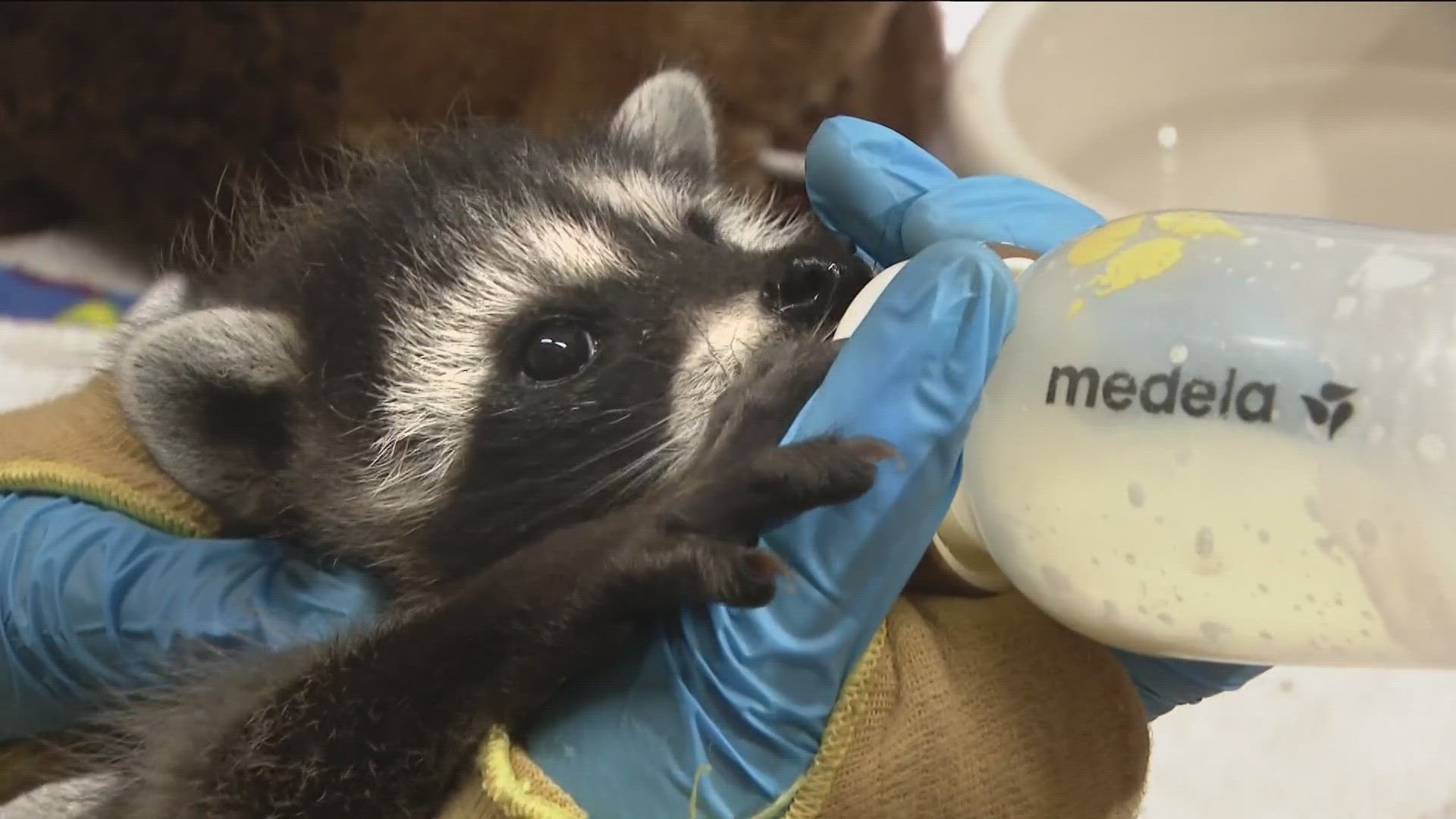RAMONA, Calif. — When a wild animal gets hit by a car or abandoned at an early age, the San Diego Humane Society is there for them.
In this Zevely Zone, I headed to Ramona for Project Wildlife for their biggest success stories of the year.
At the Ramona Wildlife Center what looks like home sweet home is just a short time stay. We arrived just in time for feeding time with baby raccoons. "Look at those little guys," I gushed. "Are you ready for your bottle?"

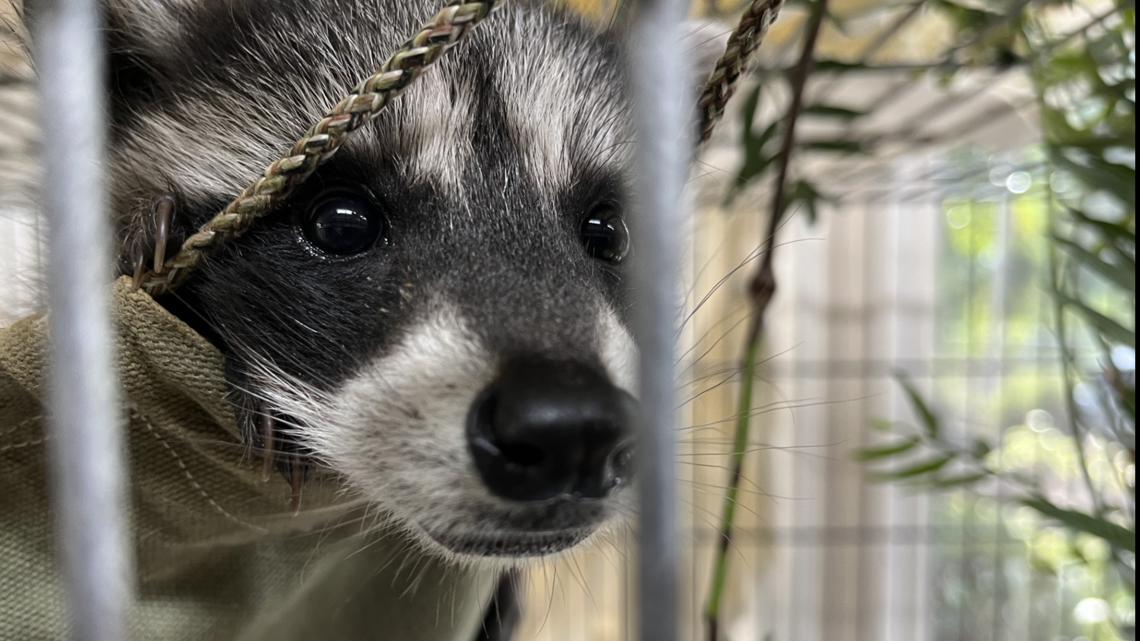
Until the critters can fend for themselves, Angela Cusick is happy to be the mother they don't have. "It's my favorite thing to do, one of my favorite things to do," said Angela. "You kind of forget everything else that you are doing and nothing else matters in life, and you just focus on this little creature that you need to feed."

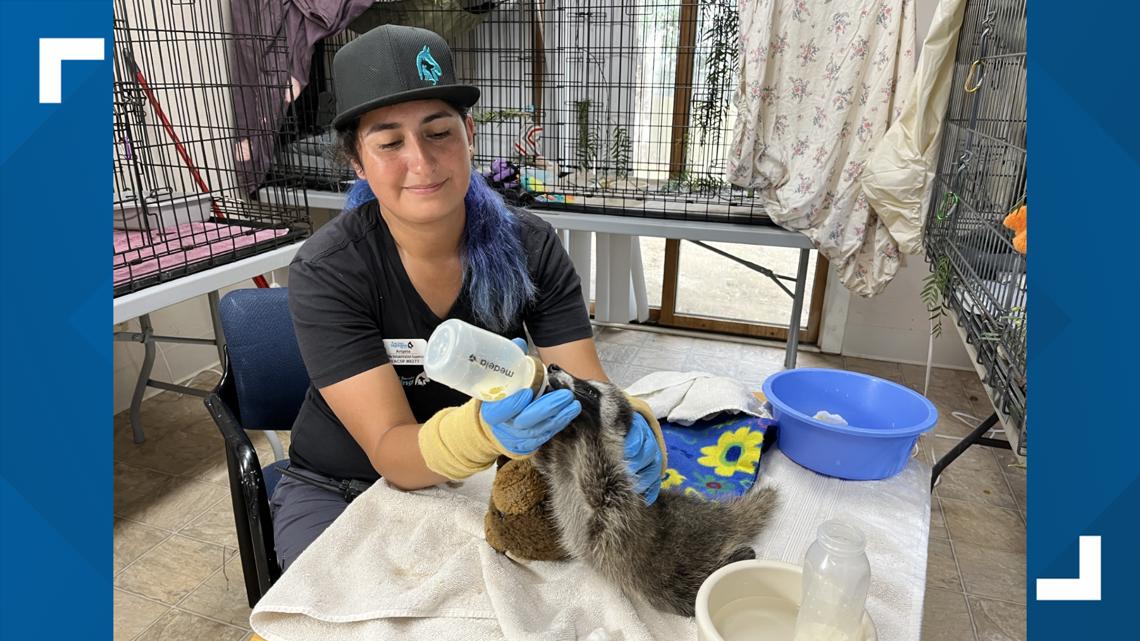
When wild animals are sick, injured or orphaned, they come to Project Wildlife.
"I am very, very lucky," said campus director Andy Blue. He says 13-hundred animals will show up needing help this year at the Ramona Wildlife Center. "Like every year, it's been very busy," said Andy.
The San Diego Humane Society showed us their greatest success stories so far this year. "It doesn't matter the species or the type of animal we will care for them here," said Andy. That includes a bobcat nursed back to health after being hit by a car.
We also watched footage of a mama and papa owls looking on as their baby was returned to its nest and video of the successful release of seven raccoons at Mission Trails Regional Park.
The staff also shared video of a Gopher snake who ate rubber ‘Dummy Egg’. The injured snake spent 35 days at San Diego Humane Society’s Ramona Wildlife Center for care. The snake who swallowed a fake chicken egg is back in the wild after being rehabilitated. The Gopher snake was brought in by a local farmer on June 16, after swallowing the farmer’s “dummy” chicken egg, which is made out of a plastic polymer product. Farmers often use dummy eggs to get their chickens to lay eggs, and snakes sometimes mistake them for real eggs. The finder said he would discontinue using the fake eggs on his property and is happy to hear the snake survived.

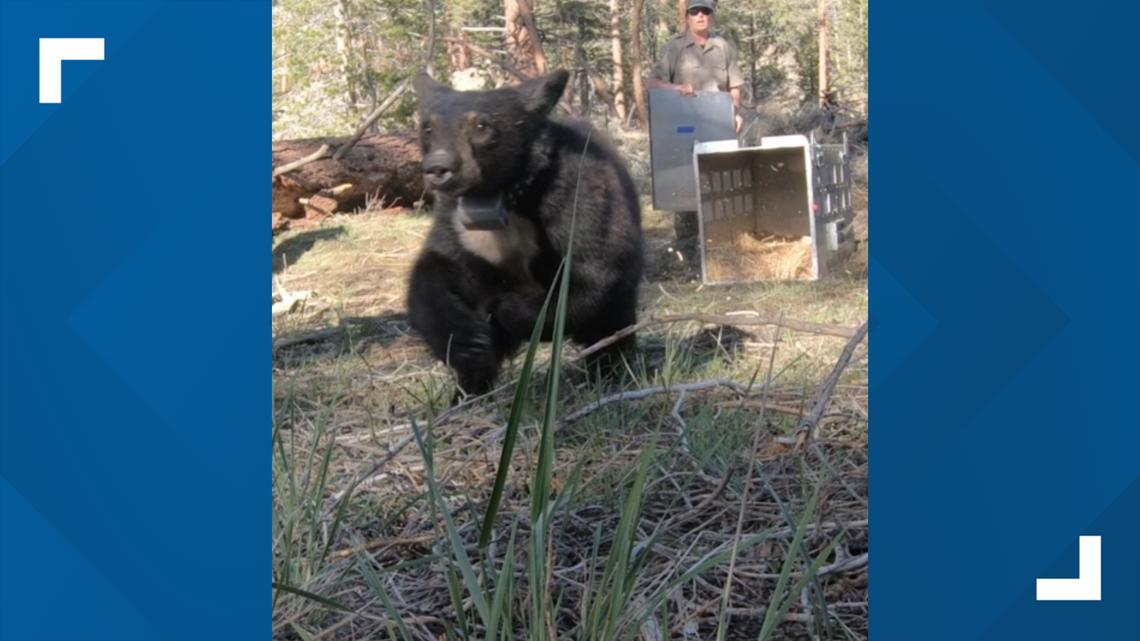
Two California black bear cubs were also released back in the wild after spending five months at San Diego Humane Society’s Ramona Wildlife Center for care and rehabilitation.
A 15-month-old female cub and a 15-month-old male cub were released just two hours apart in Central California’s Inyo and Tulare Counties on May 24 by the California Department of Fish and Wildlife.
The two cubs were housed in an outdoor enclosure together at the Ramona Wildlife Center, allowing them to exhibit more natural behaviors. They had access to trees, shrubs and natural substrate, as well as opportunities to run, climb, play and forage for food. Project Wildlife’s animal care team intentionally minimized interaction with the bears, so the cubs would not get comfortable around humans.
“Their stay with us has to mimic life in the wild, to set them up for success,” said Andy.

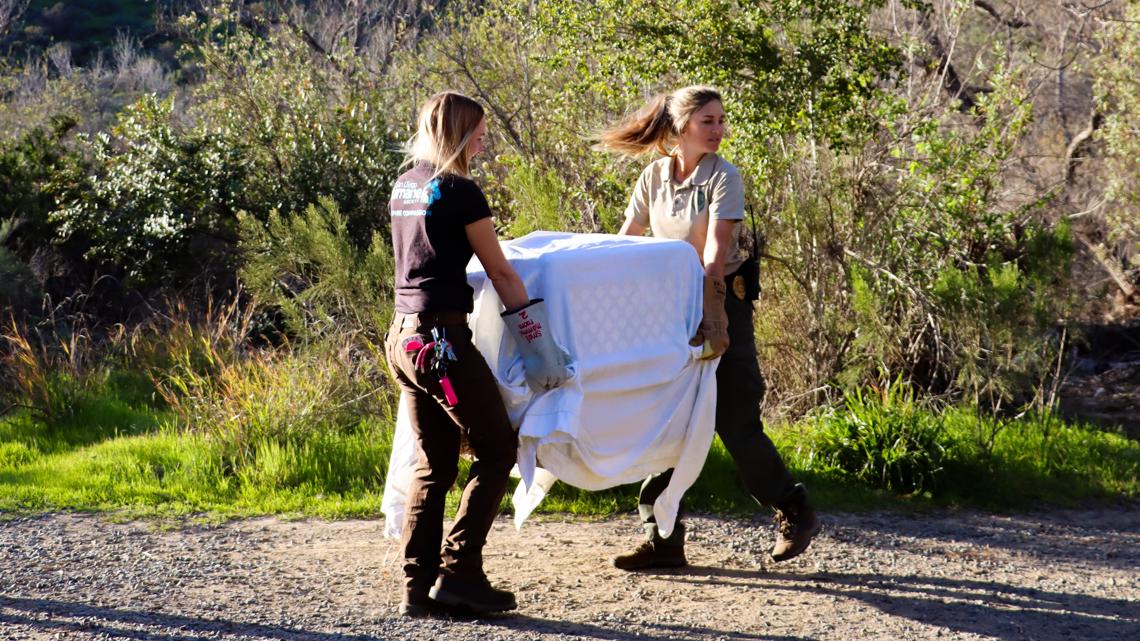
San Diego Humane Society’s Project Wildlife team also treated a coyote’s damaged leg and teeth. The coyote was caught in an illegal jaw trap on a residential property. The animal returned to the wild after three weeks in care.
“When she first came in, we didn’t think she was going to make it,” said Andy. “Typically, animals caught in these awful traps have such extensive damage, that they are unable to return to the wild and fend for themselves.”
"We do a thousand of these releases a year and everyone is special," said Andy. "You know it truly never gets old I've been doing this for years and it doesn't matter if it's a Gopher snake slithering off into the bushes or several baby racoons, or a mountain lion or a bobcat."

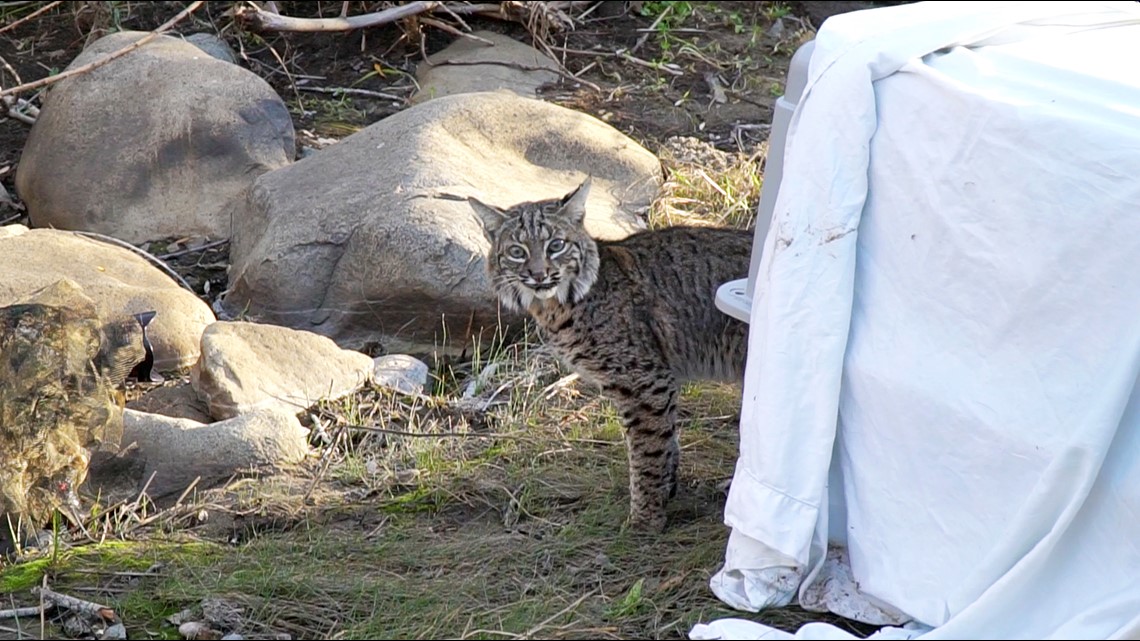
As for Angela Cusick as her racoon babies, the orphans will be cared for with loving hands until their release. "We do burb them, easier said than done as you can tell," said Angela. How many people can say they've burped a baby racoon? "Not many ha, ha, ha," laughed Angela. "Little milk mustaches, ha, ha, ha."
Project Wildlife is in great need for the public’s support this fall in donating nuts, acorns, seeds, and any produce (apples, persimmons, pomegranates, figs) that our wildlife patients eat. They still have two bears, coyotes, bobcats and plenty of animals in their care. Items can be brought to our Bahde Wildlife Center (5433 Gaines St., San Diego, 92110) or our Ramona Wildlife Center (18740 Highland Valley Rd., Ramona, 92065) between 10 a.m. and 5 p.m. daily.)
Project Wildlife tries to release the animals within ten miles of where they were found. For more information about the program or to make a donation click here.

